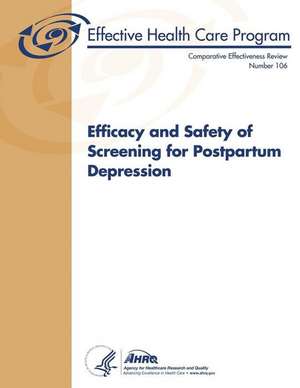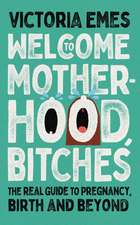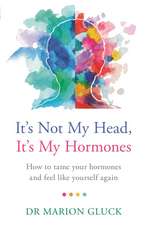Efficacy and Safety of Screening for Postpartum Depression
Autor U. S. Department of Heal Human Services, Agency for Healthcare Resea And Qualityen Limba Engleză Paperback
Preț: 157.69 lei
Preț vechi: 165.98 lei
-5% Nou
Puncte Express: 237
Preț estimativ în valută:
30.18€ • 32.80$ • 25.37£
30.18€ • 32.80$ • 25.37£
Carte disponibilă
Livrare economică 31 martie-14 aprilie
Preluare comenzi: 021 569.72.76
Specificații
ISBN-13: 9781489524720
ISBN-10: 148952472X
Pagini: 220
Dimensiuni: 216 x 280 x 12 mm
Greutate: 0.52 kg
Editura: CREATESPACE
ISBN-10: 148952472X
Pagini: 220
Dimensiuni: 216 x 280 x 12 mm
Greutate: 0.52 kg
Editura: CREATESPACE



